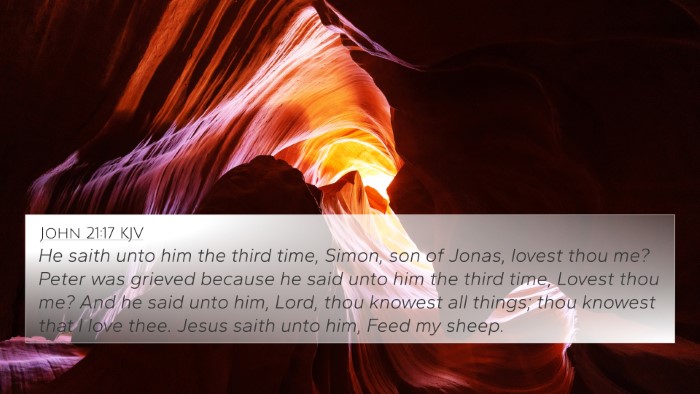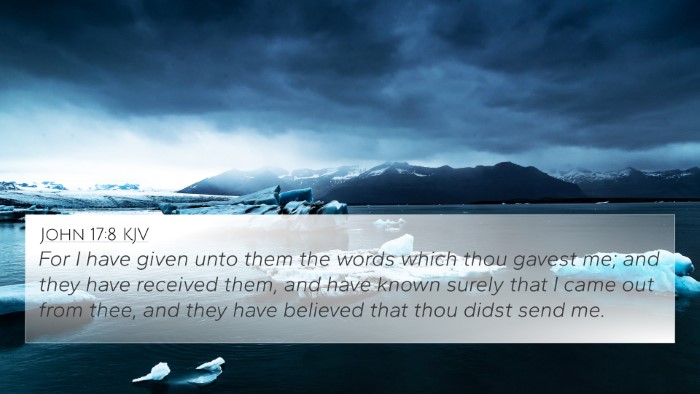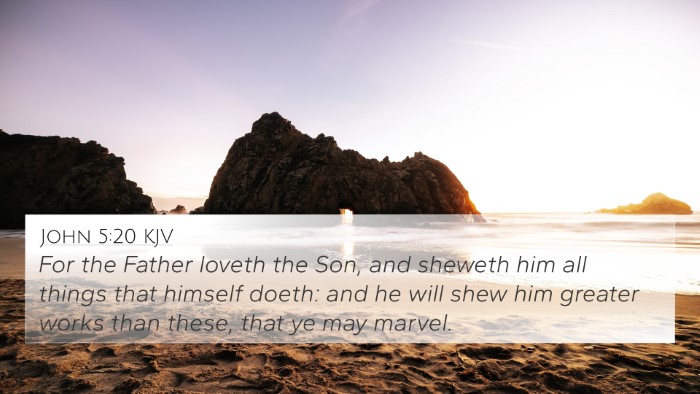Understanding John 16:30
In John 16:30, the disciples assert their understanding of Jesus' divine nature and His origins, saying,
"Now we are sure that you know all things and do not need that anyone should question you.
By this we believe that you came forth from God." This declaration reveals their enlightenment about Jesus as the Messiah and the Son of God.
Commentary Insights
Various public domain commentaries shed light on the significance of this verse:
- Matthew Henry: He emphasizes that the disciples’ acknowledgment of Jesus’ omniscience signifies a crucial turning point in their faith. They now recognize His authority and divine insight, leading to a deeper commitment.
- Albert Barnes: Barnes notes that the disciples express a confidence in Jesus’ knowledge, reinforcing the essence of faith in recognizing His divine origins. This statement showcases a transition from doubt to belief.
- Adam Clarke: Clarke elaborates on the implications of their statement, indicating that their faith is rooted in experiential knowledge. They have witnessed Jesus’ miracles and teachings, affirming their belief in His divine mission.
Cross-Referencing Biblical Texts
John 16:30 can be cross-referenced with several key scriptures that illuminate its themes:
- John 1:14: "And the Word became flesh and dwelt among us." This verse parallels the understanding of Jesus' incarnate nature.
- John 16:17-18: Conversations surrounding faith and misunderstanding among the disciples as they seek clarification from Jesus.
- Matthew 16:16: Peter declares Jesus as the Christ, similar to the disciples’ acknowledgment in John 16:30.
- Luke 9:20: "But what about you? Who do you say I am?" highlighting the importance of personal recognition of Jesus' identity.
- 1 Corinthians 2:10-16: Discussing spiritual wisdom and understanding akin to what the disciples experience.
- John 8:32: "And you shall know the truth, and the truth shall make you free," connecting the theme of knowledge through faith.
- Romans 10:9: The necessity of confessing Jesus as Lord, reflecting the disciples' public affirmation of faith.
- Acts 2:36: Peter's proclamation to the crowd, affirming Jesus’ resurrection and divine authority.
- Hebrews 1:2: "In these last days he has spoken to us by his Son," reinforcing the understanding of Jesus’ divine sending by God.
- Philippians 2:10-11: Every knee shall bow to Jesus, affirming His sovereignty acknowledged by the disciples.
Thematic Connections and Interpretations
The connection between John 16:30 and other Bible verses illustrates the broader themes of faith, revelation, and the divine nature of Christ.
This verse can be viewed as part of a larger narrative about the identity of Jesus and the disciples’ growing understanding of Him.
Tools for Bible Cross-Referencing
To explore biblical connections further, consider utilizing the following tools:
- Bible Concordance: A useful resource for locating passages and references related to key themes and words.
- Bible Cross-Reference Guide: Assists in finding direct connections between related Bible verses.
- Cross-Reference Bible Study: This method encourages deeper analysis and understanding of scripture in relation to itself.
- Bible Reference Resources: Various books and tools are available for extensive cross-referencing studies.
- Bible Chain References: Linking verses in chains to show thematic or narrative progression throughout scripture.
Conclusion
John 16:30 stands as a testament to the disciples’ recognition of Jesus’ divine authority. This recognition invites us to explore other scriptures that echo and enhance our understanding of Christ’s nature and mission. By employing cross-referencing techniques, we can deepen our grasp of biblical relationships and the overarching story of redemption.
Whether through personal study or group discussions, the insight found in John 16:30 and its related verses can lead to profound spiritual growth and increased faith.








